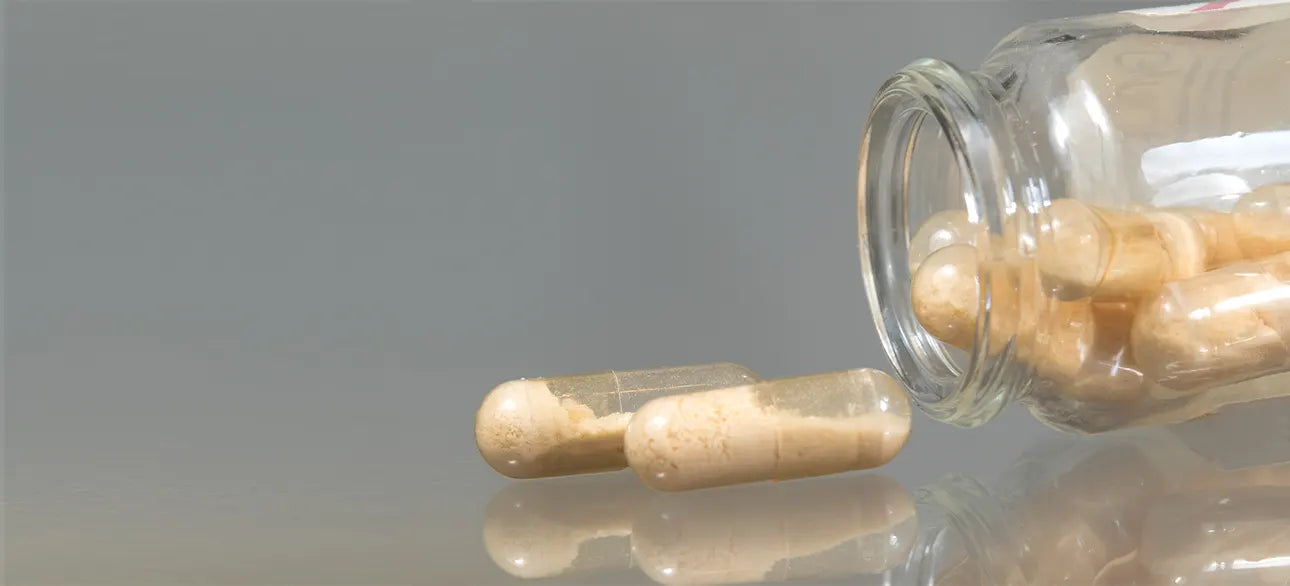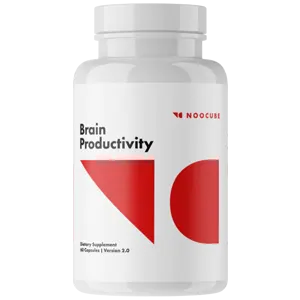ProMind Complex Review: Can This Supplement Boost Cognitive Health?
Can ProMind Complex enhance cognitive health? This supplement combines ingredients like Bacopa Monnieri and Huperzine A to support memory, focus, and overall brain function.
Advertiser Disclosure: We independently select all the products. If you click through links we provide, we may earn a commission.

Key Takeaways
- ProMind Complex is a natural supplement aimed at improving memory, focus, and cognitive health.
- Key ingredients include Bacopa Monnieri, Huperzine A, and Ginkgo Biloba, with mixed evidence for effectiveness.
- Users report varied results, with some experiencing benefits and others noticing minimal changes.
- Potential side effects include mild headaches, digestive discomfort, and possible interactions with medications. cogniultra
- Cogniultra offers a broader ingredient profile and better value.
- ProMind Complex is best suited for adults seeking mild cognitive support.
Is it one of those days? You forget where you left your keys, lose track of conversations, or struggle to focus on even the simplest tasks. Is it?
Listen, it’s not just you—more and more people are noticing these mental hiccups, whether from stress, aging, or the sheer overload of modern life.
Maybe there’s a way to give your brain the support it needs to stay sharp and focused. Brain health supplements, maybe? These products are popular for offering a natural approach to boosting memory, clarity, and overall cognitive wellness.
One name that’s been catching attention is ProMind Complex. Promising a blend of natural ingredients aimed at supporting brain health, it claims to tackle everything from brain fog to memory lapses.
In this review, we’ll break down its ingredients, effectiveness, and value to help you decide if it’s the right fit for your mental wellness journey. Ready? Let’s get right into it.
Ingredient Analysis
ProMind Complex is a cognitive health supplement that combines several natural ingredients, each selected for its potential to support memory, focus, and overall brain function.
The key components include Bacopa monnieri, Huperzine A, St. John’s Wort, Vinpocetine, and Tyrosine.
While some of these ingredients, like Bacopa monnieri and Huperzine A, are supported by substantial scientific evidence, others, such as St. John’s Wort, Vinpocetine, and Tyrosine, have less convincing research backing their effectiveness for cognitive health.
Here’s a deeper look into what each has to offer.
Bacopa monnieri
Bacopa monnieri, often referred to as Brahmi, is a staple in Ayurvedic medicine and is widely recognized for its ability to enhance memory and reduce anxiety.
The active compounds in Bacopa, known as bacosides, are believed to improve brain function by promoting neuron communication and protecting against oxidative stress. Clinical studies have consistently demonstrated its effectiveness.
For instance, a 12-week study involving healthy adults found that daily supplementation with 300 mg of Bacopa monnieri significantly improved memory retention and processing speed.
Bacopa’s mechanism of action includes modulating neurotransmitters like acetylcholine, which is crucial for learning and memory, and reducing oxidative damage in the brain.
Its strong scientific backing makes it a valuable addition to ProMind Complex, offering well-documented cognitive benefits.
We approve of this ingredient.
According to Emily Roberts - Licensed Clinical Mental Health Counselor
Bacopa monnieri has long been a cornerstone of Ayurvedic medicine due to its well-documented cognitive benefits, particularly in improving memory and managing anxiety. Its active compounds, bacosides, help promote neuronal communication and protect against oxidative stress, making it a valuable asset in enhancing brain health
During our research, we came across an insightful video by @NootropicsExpert that highlights how Bacopa monnieri supports and protects brain health.
Huperzine A
Huperzine A, derived from the Chinese club moss, is a natural acetylcholinesterase inhibitor. This means it prevents the breakdown of acetylcholine, a neurotransmitter essential for memory and learning.
Studies have shown that Huperzine A can significantly improve cognitive function, particularly in individuals with Alzheimer’s disease. A meta-analysis of clinical trials found that it enhanced memory and daily functioning in Alzheimer’s patients.
However, its benefits for healthy individuals are less clear. Huperzine A also exhibits neuroprotective properties, shielding neurons from damage and supporting overall brain health.
While it is a promising ingredient, more research is needed to confirm its long-term benefits for general cognitive enhancement.
Nevertheless, its inclusion in ProMind Complex adds value, especially for those seeking to support memory and focus.
We, therefore, approve of this ingredient.
St. John’s Wort
St. John’s Wort is primarily known for its antidepressant properties, attributed to its ability to increase serotonin levels. However, its role in cognitive enhancement is less established.
While it has been shown to be effective for mild to moderate depression, there is little evidence to support its use for improving memory or focus. Most studies on St. John’s Wort focus on its mood-enhancing effects rather than its impact on cognitive function.
Additionally, it is known to interact with various medications, including antidepressants and blood thinners, which can lead to adverse effects.
he inclusion of St. John’s Wort in ProMind Complex is questionable, as its cognitive benefits are not well-supported by research, and its potential for drug interactions further complicates its use.
We, therefore, don’t approve of this ingredient.
Vinpocetine
Vinpocetine, a synthetic compound derived from the periwinkle plant, is often marketed as a cognitive enhancer. It is believed to improve blood flow to the brain, which could theoretically support memory and focus.
However, the evidence for Vinpocetine’s effectiveness is mixed. While some studies suggest it may enhance cerebral blood flow, its impact on cognitive function remains unproven[4].
Moreover, the FDA has raised concerns about its safety, classifying it as an unapproved drug rather than a dietary supplement. This regulatory status, combined with the lack of robust evidence, makes Vinpocetine a controversial ingredient.
Its inclusion in ProMind Complex is problematic, and consumers should approach this ingredient with caution.
We don’t approve of this ingredient.
Tyrosine
Tyrosine is an amino acid involved in the production of neurotransmitters like dopamine and norepinephrine, which play a role in mood and focus.
It is often included in supplements for its potential to improve focus and reduce stress.
However, while Tyrosine may enhance cognitive performance in stressful situations, such as sleep deprivation, its benefits for everyday cognitive function are minimal.
Most studies focus on its short-term effects rather than its ability to support long-term brain health. As a result, Tyrosine’s role in ProMind Complex is debatable.
While it may offer temporary benefits in high-stress scenarios, it is unlikely to provide significant cognitive improvements for the average user.
We, therefore, don’t approve of this ingredient.
Quick Decision Guide: Promind Complex vs Our Top-Rated Brain Supplement (CogniUltra®)
Table of Content |
Promind Complex |
Cogniultra |
|---|---|---|
Product |
 |
 |
Rating |
||
Price |
$49.00 | $36.75 – $46.55 |
User Review |
Mixed | Mostly Positive |
Product Effectiveness |
73% | 96% |
Certification |
GMP certified | GMP Certified |
Return Policy |
60-day money-back guarantee | 60-day money-back guarantee |
Manufacturer |
ProMind Complex | Flawless Bloom |
Dosage |
1 Capsule per day | 2 Capsule per day |
Availability |
Online only |
Online only |
Made in USA |
Yes | Yes |
| Read Review❯❯ |
We Tried Promind Complex
 We Tried Promind Complex
We Tried Promind Complex
I convinced a family member to try out ProMind Complex. The promise of improved memory, sharper focus, and enhanced mental clarity was too hard to ignore, especially for someone juggling a busy schedule and occasional brain fog.
Over the course of six weeks, he followed the recommended dosage of one capsule daily.
Initially, there was some excitement. Within the first two weeks, he reported feeling slightly more alert during the day.
However, the effects were subtle and inconsistent. By the fourth week, the initial boost seemed to plateau.
Memory recall and focus, he says, showed no significant improvement beyond what could be attributed to better hydration and sleep, which he consciously worked on during this period.
The ingredient quality, while natural, didn’t seem potent enough to deliver the dramatic results advertised.
Bacopa Monnieri and Huperzine A are well-researched, but the inclusion of less-supported ingredients like St. John’s Wort and Vinpocetine raised questions about the formula’s overall effectiveness.
By the end of the trial, the impact on mental clarity and well-being was underwhelming.
So, while ProMind Complex is decent, it didn’t live up to its claims. Based on ingredient quality, effectiveness, and overall impact, we wouldn’t recommend it.
Side Effects & Safety
Some users have reported headaches, slight drowsiness, and occasional digestive discomfort. These effects typically subside as the body adjusts to the supplement. Similarly, these side effects have been associated with Brain Juice. Be sure to check out reviews of Brain Juice before trying it.
The inclusion of ingredients like St. John’s Wort and Vinpocetine raises potential concerns. St. John’s Wort is known to interact with medications, such as antidepressants and blood thinners, which could lead to adverse effects.
Vinpocetine, on the other hand, has faced scrutiny from regulatory bodies like the FDA for safety concerns.
ProMind Complex is not recommended for pregnant or breastfeeding individuals, children under 18, or those with serious medical conditions without consulting a healthcare provider.
While it may suit healthy adults, users with pre-existing conditions should exercise caution and seek medical advice before use.
Real Customer Reviews
On Amazon, ProMind Complex has a mixed reception, with an average rating of 3.1 out of 5 stars. On Trustpilot, the brand has an average rating of 2.8 stars.
Some users report noticeable improvements in memory and focus, while others feel the product didn’t meet their expectations.
One user shared their enthusiasm, stating,
I have never taken a supplement that makes me feel as good as this one. I have way more energy, feel more clear-headed, and all around better. So happy I bought this—I will purchase again in the future.
On the flip side, another user expressed frustration with the refund policy, saying,
The company gives a 60-day money-back guarantee BUT it takes about 90 days for natural products to work. I took 18 months’ worth of capsules in about 7 months, with NO effect at all. I’ve asked for a refund a couple of times, and the answer was no, as I didn’t do it within 60 days. If the product is as good as they say, they should give a one-year guarantee.”
Where to Find the Best Value
ProMind Complex is available for purchase through its official website, Amazon, and eBay. The official website offers the best value, with prices starting at $49 per bottle for bulk purchases, along with free shipping and a 60-day money-back guarantee.
On Amazon, a single bottle is priced at $28.89, while eBay lists a three-bottle pack for $35. Similar brain health supplements offer a lower price while providing more extensive benefits.
Always compare prices and check for discounts to maximize value.
Promind Complex Vs Cogniultra
When comparing ProMind Complex and Cogniultra, the differences in formulation, ingredients, and price become clear.
ProMind Complex focuses on a plant-based approach with ingredients like Huperzine A and Bacopa monnieri, targeting memory and cognitive decline.
However, its ingredient list is less extensive, and some components, like St. John’s Wort, lack robust evidence for cognitive benefits.
Cogniultra, on the other hand, boasts a more comprehensive formula, including vitamin d Bacopa monnieri, biotin, DMAE Bitartrate, and Green Tea Extract, all backed by strong research.
It also incorporates mood-enhancing elements like GABA and Zinc, making it a well-rounded choice for brain health.
In terms of price, Cogniultra offers better value, starting at $46.55 per bottle compared to ProMind Complex’s $49.95.
With its broader ingredient profile and competitive pricing, Cogniultra stands out as a more effective and economical option for cognitive support.
Pros & Cons ProMind Complex
Pros:
- Contains natural ingredients like Bacopa Monnieri and Huperzine A.
- Targets memory, focus, and cognitive health.
- Manufactured in FDA-registered facilities.
- Non-GMO and free from harmful additives.
- Offers a 60-day money-back guarantee.
- Available in discounted multi-bottle packages.
- Easy-to-use capsule form.
Cons
- Some ingredients, like St. John’s Wort, lack strong evidence for cognitive benefits.
- May cause mild side effects like headaches or digestive discomfort.
- Results may vary and take weeks to appear.
- Higher price point compared to some alternatives.
- Limited availability; only sold through the official website.
Conclusion
Time to make a choice. But, before we do that, let’s go over a few things. First off, ProMind Complex offers a natural formula with some promising ingredients, but its results can be inconsistent. While it may work for some, the limited evidence for certain components and its higher price might leave others hesitant.
Cogniultra, on the other hand, stands out with a broader, research-backed ingredient profile and better value. Its focus on comprehensive cognitive support makes it a compelling alternative.
Ultimately, the decision is yours. Consider what matters most - effectiveness, ingredients, or cost - and choose accordingly. If you’re seeking a well-rounded option, Cogniultra might be worth the shot.
FAQs
References
Flawless Bloom has strict sourcing policies and relies on primary sources such as medical organizations, academic institutions, governmental agencies, and peer-reviewed scientific journals. Read more about how we ensure our content is accurate, thorough, and unbiased by reading our editorial process.
- Effects of 12-Week Bacopa monnieri Consumption on Attention, Cognitive Processing, Working Memory, and Functions of Both Cholinergic and Monoaminergic Systems in Healthy Elderly Volunteers: https://doi.org/10.1155/2012/606424
- Huperzine A for Alzheimer's disease: a systematic review and meta-analysis of randomized clinical trials: https://doi.org/10.1371/journal.pone.0074916
- Hypericum perforatum chronic treatment affects cognitive parameters and brain neurotrophic factor levels: https://doi.org/10.1590/1516-4446-2017-2271
- An update on Vinpocetine: New discoveries and clinical implications: https://doi.org/10.1016/j.ejphar.2017.11.041
- Tyrosine, phenylalanine, and catecholamine synthesis and function in the brain: https://doi.org/10.1093/jn/137.6.1539S




























1 comment
I tried ProMind Complex hoping it would improve my memory and focus, but after a month, there was hardly any difference. The ingredients seem promising, but the results were underwhelming. Definitely not worth the price.